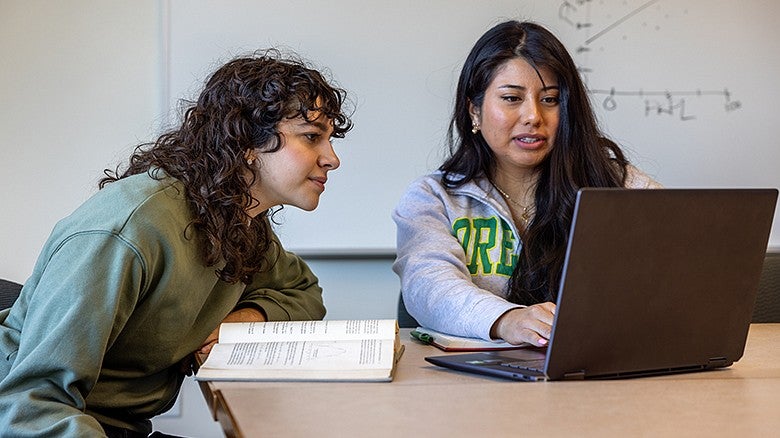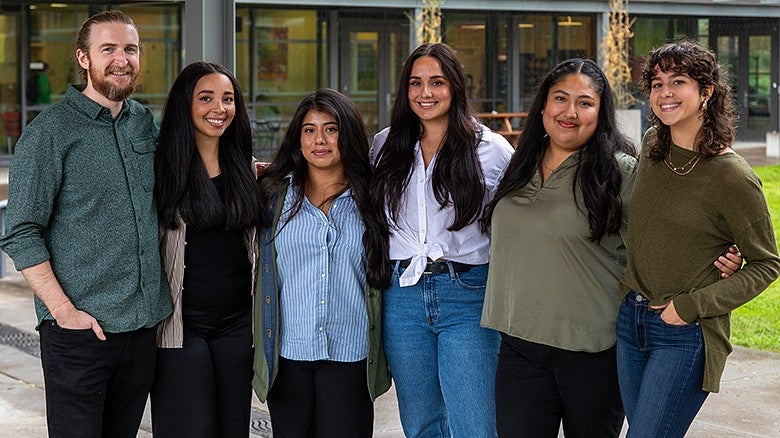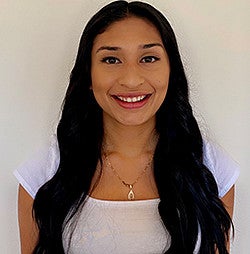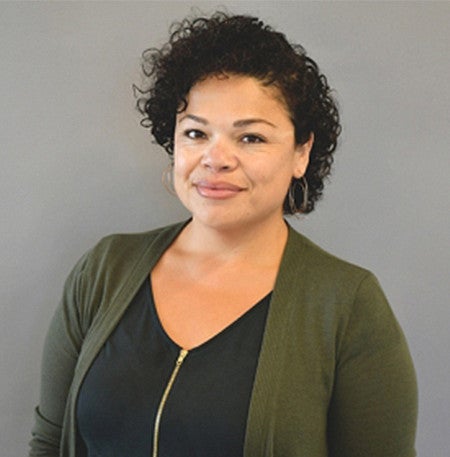Careers | Spanish Language Specialization | Meet Our Faculty | Success Story | Accreditation | Apply Now

About the Counseling Psychology (CPSY) Program
The Counseling Psychology (CPSY) Program at the University of Oregon is the 8th longest continually accredited doctoral program in counseling psychology in the U.S., accredited by the American Psychological Association (APA) since 1955. Our program focuses on training students in prevention and intervention with children and families, adults, and communities to support careers in research with a range of diverse and underserved populations.
The CPSY program is located in the Department of Counseling Psychology and Human Services in the College of Education at the University of Oregon, which also includes an undergraduate major in Family and Human Services, a graduate degree in Couples and Family Therapy, and graduate degrees in Prevention Science. Students collaborate in coursework and research with graduate students across programs and work closely with instructors in our undergraduate degree program during their careers at the University of Oregon. The CPSY program faculty and students work collaboratively with faculty at the Ballmer Institute for Children’s Behavioral Health, an institute in Portland focused on promoting the wellness of children and adolescents in Oregon and beyond.
Faculty in Counseling Psychology conduct research on a variety of topics relevant to our strengths in prevention and intervention, including family-centered prevention, young adult substance use prevention, health promotion, domestic violence, child development, and community-based prevention. Students provide clinical services in the HEDCO clinic with both adults and children. The HEDCO clinic is an on-site clinic that serves the larger Eugene/Springfield area of Oregon including rural areas of the state.
Click the link below for more information on coursework and our graduate program.
Counseling Psychology Graduate Program
Spanish Language Specialization
The Counseling Psychology Program houses the Spanish Language Specialization. School Psychology and Couples and Family Therapy program students may also add the specialization to the program plan.
Spanish Language Specialization
What can I do with this degree?
Our graduates impact society as professors and researchers in university academic departments, medical schools, research institutes and centers, and as licensed psychologists in a variety of leadership roles including community health, university health centers, schools, hospitals, and medical settings.
Across these contexts, our graduates engage in provision of culturally competent clinical prevention and intervention services, research and scholarship focused on developing and applying best practices in intervention, grant writing, teaching, supervision, and service to their diverse academic, research, and local communities and to the profession.
Take the Next Step
Call us, email us, visit us or apply to the program. We’re here to answer your questions about how the Counseling Psychology (CPSY) program at the University of Oregon can grow your future.
A Unique Cohort Experience
Students can enter the program with or without a master’s degree and generally need 5 to 6 years to complete a doctoral degree. During that time, they develop close relationships with peers, faculty, and staff in the department. We use data to drive decision making that will change the way our society responds to behavioral health and wellness across diverse and underserved communities and settings.

What Our Students Are Saying...

Jasmine Ramirez-Miranda, '25
"I chose the CPSY program because of the program’s commitment to provide students with the skills to support the provision of culturally relevant mental health services and research.
What I most value since joining the program is the supportive and empowering CPSY student community, I could not imagine getting through the program without my fellow peers!"
Hands-On Experience
The Counseling Psychology program’s philosophy and goals have evolved over time to provide state-of-the-art training to students. Our program has set forth a vision of what the counseling psychologist of the next few decades should be, and we make every effort to train our students to this vision. As a program that trains health service psychologists with an emphasis in counseling psychology, our students receive a core sequence of training sequence focused on evidence-based individual, child and family, and community and preventive interventions implemented in both clinical and community settings. This core training sequence helps students develop and apply clinical skills to a broad range of practice settings and populations, to assess and intervene in a manner relevant to the larger cultural, sociopolitical, and economic context in which humans develop, and to conduct and disseminate research that reflects and furthers efforts to improve individual and community well-being.
Hear from some of our faculty
Success Story

Dr. Alison Cerezo, '09
Dr. Alison Cerezo is an Assistant Professor of Counseling Psychology in the Department of Counseling, Clinical, and School Psychology of UC Santa Barbara’s Gevirtz School. She received her B.A. in Psychology and Women & Gender Studies (double majors) from UC Los Angeles; M.A. degree in Psychology, Research Emphasis from CSU Los Angeles; and PhD in Counseling Psychology from the University of Oregon College of Education. Prior to joining the faculty at UCSB, Dr. Cerezo was an Associate Professor in the Department of Counseling, College of Health and Social Sciences, San Francisco State University where she coordinated the College Student Personnel Counseling Specialization (2013-2018) and served as Affiliate Faculty with the Health Equity Institute.
Dr. Alison Cerezo’s primary line of research centers on addressing social and health disparities using an intersectionality framework. Her current projects focus on the associations between trauma, social stress, mental health and substance use for diverse LGBTQ+ communities. Most recently, her work has focused on the links between stigma, discrimination and alcohol misuse and alcohol risk behaviors in sexual minority women. She is also interested in reducing barriers to mental health treatment for this community. Dr. Cerezo uses qualitative, quantitative and mixed methodologies and has carried out research on sexual and gender diverse communities in the U.S. and Mexico.
Commitment to Inclusion and Social Change
The Department of Counseling Psychology and Human Services strives to maintain an inclusive learning environment that values and celebrates diverse perspectives so that all students can flourish professionally and personally. Our view of diversity encompasses, but is not limited to, ability, age, culture, gender, language, nationality/geography, political views, race/ethnicity, religious beliefs and practices, sexual orientation, and socioeconomic status/class. Advancing social justice is central to our educational mission. We condemn the systemic racism, oppression, and violence against minoritized communities in the United States and stand in solidarity with calls for social justice. Our community strives to advance social justice through our research, pedagogy, service, and clinical outreach, which collectively aim to improve the lives of individuals, families, and communities. Our work toward these goals is an ongoing journey of learning, and we welcome input from our students, colleagues, alumni, and friends to support these efforts.
Accreditation
Accredited by the Commission on Accreditation of the American Psychological Association.
Questions related to the program's accredited status should be directed to:
Commission on Accreditation
Office of Program Consultation and Accreditation
American Psychological Association
750 1st St. NE, Washington, DC 20002
Phone: (202)336-5979, Email: apaacred@apa.org
APA accreditation website

